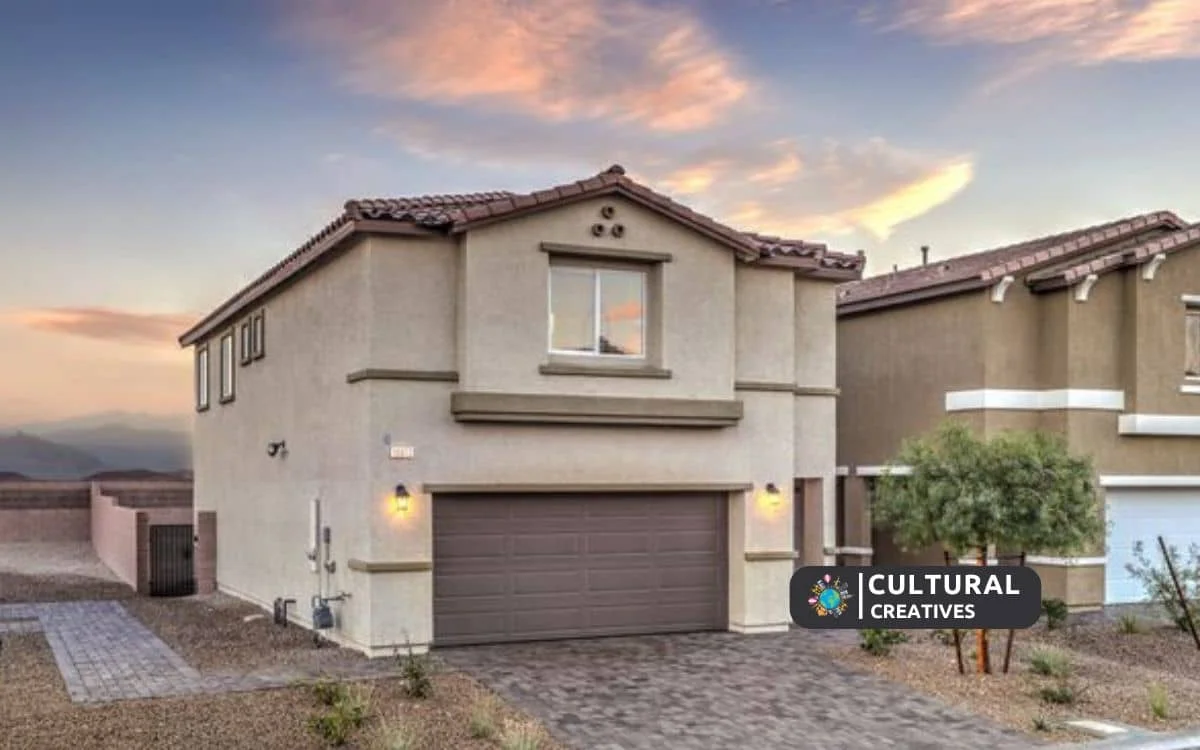The average rent in Las Vegas hovers around $1,500 per month. Rental costs can vary significantly based on location and amenities.
Las Vegas, widely known for its vibrant nightlife and entertainment scene, has become an attractive city for many looking to enjoy its eclectic mix of options. The rental market reflects the city’s popularity, offering a range of housing from luxury apartments to more affordable spaces, all catering to the diverse population.
Renters can find themselves in the midst of the excitement on the Strip or in quieter, suburban neighborhoods. With its growing economy and continuous development, Las Vegas presents a dynamic living environment. Those searching for rental properties should consider their priorities, whether they value proximity to work, schools, or the allure of the Las Vegas lifestyle, as they navigate the city’s real estate landscape.
Las Vegas Rental Market
Discovering the average rent in Las Vegas opens a window to the vibrant housing scene. Nicknamed ‘Sin City’, Las Vegas boasts a dynamic rental market. It mirrors the city’s pulsating nightlife and thriving economy. Tenants tap into diverse living quarters. From flashy condos on the Strip to cozy apartments in quiet suburbs. Let’s zoom into what makes Las Vegas an enduring magnet for renters.
The Attraction Of Sin City
Las Vegas pulls crowds for its entertainment and job opportunities. A haven for tourism and hospitality jobs, it tempts not just tourists but eager job seekers. Living in Las Vegas means being at the heart of excitement—uptown lifestyle, year-round events, and culinary delights at every corner. This city is a gem for those seeking an energetic urban life.
Factors Influencing Rental Prices
Varying factors shape rental costs in Las Vegas.
- Location: Proximity to the Strip or employment hubs can drive up prices.
- Size & Amenities: More space and luxury offerings mean higher rent.
- Economic Tides: The city’s economy reflects in its rental market.
- Supply and Demand: High demand in Las Vegas nudges rent upward.
For a more concrete picture, consider a rent comparison chart.
| Area | Studio | 1 Bedroom | 2 Bedrooms |
|---|---|---|---|
| The Strip | $1,200 | $1,500 | $2,200 |
| Suburbs | $900 | $1,100 | $1,400 |
Remember, these figures vary as you explore different neighborhoods. Each has its unique charm and price tag. Whether you dream of a high-rise apartment or a family-friendly area, Las Vegas has it all.
Current Rental Trends
Las Vegas rental market exhibits a dynamic mix of trends. Diverse neighborhoods and the vibrant entertainment industry shape the cost of living here.
Recent years show a rise in rent prices. Many factors contribute to this trend, including economic growth and urban development.
Average Rent By Neighborhood
Vegas neighborhoods vary widely in rent. Luxury areas command higher prices, while other areas are more budget-friendly.
| Neighborhood | Average Rent |
|---|---|
| Summerlin | $1,500 |
| Henderson | $1,350 |
| Downtown Vegas | $1,250 |
Comparison To National Averages
Las Vegas rent often aligns with the national average. Yet, some neighborhoods stand out with either much higher or lower rates.
- Nationally, the average rent for a one-bedroom is around $1,300.
- In Las Vegas, it’s comparable or slightly above, depending on the area.
Apartment Types And Prices
Las Vegas offers a variety of apartments. Each has different costs. Renters can find a place that fits their budget. Families, singles, and everyone in between can find a home here. Let’s dive into the types and prices of apartments in Las Vegas.
Studio And One-bedroom Variations
Studios are perfect for singles. These spaces are smart and compact. They include a combined living area and sleeping space. One-bedroom apartments offer more privacy. They have a separate bedroom. They are great for couples or those who want extra space.
| Type | Average Rent |
|---|---|
| Studio | $800-$1,000 |
| One-Bedroom | $1,000-$1,300 |
Prices for studios and one-bedrooms vary. Location, amenities, and upgrades affect the cost. Units closer to the Strip are pricier. Apartments with pools and gyms may charge more too.
Larger Apartments And Luxury Units
Two-bedroom and larger apartments suit families or roommates. They offer more space and bedrooms. Luxury units come with high-end finishes. They provide resort-style living.
| Type | Average Rent |
|---|---|
| Two-Bedroom | $1,200-$1,500 |
| Three-Bedroom | $1,500-$2,000 |
- Features: Stainless appliances, smart home tech
- Amenities: Pools, saunas, gyms, concierges
- Prices: Can start at $2,000 and go up
Luxury living costs more. These units often have incredible views and services. You might find them in high-rises and exclusive communities.
Impact Of Economic Factors
Understanding the average rent in Las Vegas means looking at the city’s economy. Quite a few factors can change the rent prices. Two big ones are tourism and jobs, and how many houses and apartments are available.
Tourism And Job Market Contributions
Vegas thrives on visitors. More tourists lead to more jobs in hotels, restaurants, and casinos. When many people work, they can pay for housing. This demand can make rent go up. Sometimes, even higher-paying jobs appear, like in tech or business. This means some can afford pricier places, pushing the average rent higher.
Real Estate Development And Availability
Developers build new places to live in Vegas often. But if they can’t keep up with how many people want to move here, it’s tough to find a good place. Fewer homes mean landlords can ask for more rent. The balance between how many homes are built and how many people want them can really change what renters pay.
| Factor | Effect on Average Rent |
|---|---|
| Increased Tourism | Rent goes up with job growth |
| Job Market Expansion | Better jobs may increase rent |
| Real Estate Supply | Less availability, higher rent |
| Real Estate Demand | More demand, rent might rise |
Remember, the average rent tells one story. Individual situations can vary. But economics gives a big-picture look at rent trends in Sin City.
Predicting Future Rent Fluctuations
Las Vegas, a city known for its vibrant lifestyle and tourism, also has a dynamic housing market. As you consider moving to this glittering city, one question stands out: How much will it cost you to rent? The answer not only depends on the current market but also on where it’s heading. The future of rent fluctuations in Las Vegas is a topic worth exploring.
Expert Forecasts
Analysts have their eyes on Las Vegas’s rent trajectory. They study past trends and current events. This helps to predict where rent prices may go. Their insights offer valuable hints to potential renters and investors alike. Here’s what they have to say:
- Inflation could push rent prices up.
- Economic recovery post-pandemic may balance the market.
- New construction projects might offer more options.
Potential For Growth In Las Vegas Market
Las Vegas is growing, attracting new residents and businesses. This growth impacts the housing market. Here are some points to consider:
- Population increases drive demand for rental properties up.
- New job opportunities can lead to higher rents.
- Entertainment and tourism contribute to the rental market.
A table highlighting past average rent trends in comparison to current prices can offer a visual representation of growth:
| Year | Average Rent |
|---|---|
| 2021 | $1,100 |
| 2022 | $1,200 |
| 2023 | $1,250 |
Such data showcases not just past rates but signposts for future trends. Renters should watch these changes closely.
Conclusion
Understanding the average rent in Las Vegas helps with budgeting for life in this vibrant city. It varies by neighborhood and amenities. For seekers of a desert oasis, knowing the costs can define your lifestyle choices. Keep up with the market, as Vegas never stops changing.
Start exploring your options in this exciting locale today!






